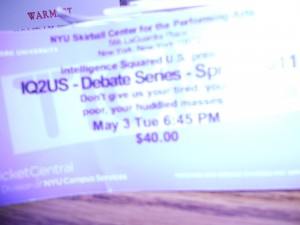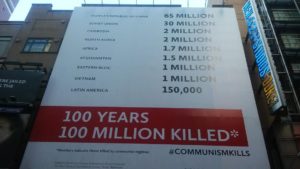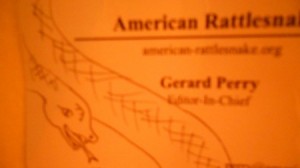This past tuesday I had the distinct pleasure of attending an Intelligence Squared debate whose subject is one that this website has addressed repeatedly in the past, although admittedly, not as often as I would have liked. The drive to thwart repeated amnesty proposals introduced throughout this past year has not given us the opportunity to address the innumerable problems presented by unfettered, mass (legal) immigration.
That’s why I relish the chance to explore the flaws of our current, post-1965 wave of immigration. Or, as the framers of the IQ2 debate phrased their resolution: Don’t Give Us Your Tired, Your Poor, Your Huddled Masses.
The title, although slightly cheeky, was appropriate, given the subject under discussion. I have to commend Congressman Tom Tancredo for using his opening statement to debunk many of the myths surrounding The New Colossus, the Emma Lazarus sonnet inscribed upon a plaque inside of the Statue Of Liberty. Contrary to popular opinion-at least, the opinion propounded by supporters of mass immigration-that poem has absolutely nothing to do with immigration, and was in fact penned in connection with the transatlantic fundraising campaign to erect the iconic statue in New York Harbor. The statue itself was designed with the intention of honoring American liberty by French liberals and republicans, not as a tribute to mass immigration; certainly not as a calling card for mass, unskilled, uneducated immigrants from the Old World.
After knocking down one of the chief rhetorical pillars of the pro-immigration mythos constructed by their opponents, Tamar Jacoby and Julian Castro, the current mayor of San Antonio, Tancredo and Secretary of State Kris Kobach proceeded to make the empirical case against our current, misguided federal immigration policies. While Jacoby attempted to justify low skilled immigration on the basis of economic expediency, i.e. it helps the large corporations, and their lobbyists, that are her organization’s chief benefactors, Mayor Castro attempted to limn the legal and political arguments in favor of unfettered immigration as he saw them.
The case by Jacoby is a familiar one, equally unconvincing today as it was when corporate lobbying outfits like the Chamber of Commerce, National Restaurant Association, and American Farm Bureau demanded the imposition of amnesty and guest worker programs opposed by the vast majority of Americans in years past. Secretary Kobach made a convincing rebuttal to these tedious talking points that focused on the seven million jobs that illegal aliens occupy which could be filled by the over 14 million Americans who currently find themselves unemployed. He also pounded home the ineluctable fact that low-skilled immigrants from poverty-stricken regions depress the wage scale of every industry in which they’re employed. The perfect illustration of this phenomenon is the meatpacking industry, which has been transformed from a relatively desirable, decently compensated, working class vocation into a way station for underpaid immigrant workers.
It was at this point that the philosophical gulf between the two sides came into stark relief, as Tamar Jacoby repeated the stale platitudes of the Chamber of Commerce and its allies, including the charges that immigrants do the jobs “Americans won’t do,” and that even those who were willing to allegedly demean themselves by embracing “menial” work would eventually quit those jobs once better opportunities for career advancement arose. In response to the affirmative’s citation of the Swift meat processing plant, which continued to thrive in spite of the immigration raids that stripped it of many “hard-working” illegal aliens, Jacoby asserted-with no supporting evidence-that the plant experienced a high turnover rate once it began to rely upon the labor of actual Americans.
Perhaps even more persuasive than the economic argument against our government’s current immigration policy, were the fiscal arguments which Mr. Kobach marshalled with aplomb. He rightly brought up the extremely high percentage of immigrant-headed households that rely upon one or several different welfare programs, a percentage that outstrips even the large percentage of American citizens who now use those very same programs, according to statistics from the U.S. Census Bureau. This was the pivotal moment of the debate from my perspective, with Kobach repeating the famous Milton Friedman quote declaring the mutual incompatibility of a welfare state with unfettered, unskilled immigration.
Even though the negative side attempted to refute the concrete data provided by Kris Kobach, prompting an hilarious exchange where Ms. Jacoby was asked if she thought that National Academy of Sciences was biased against immigrants, the negative fiscal impact of our current immigration pool is, as he said during the debate, indisputable. While conceding that using generous extrapolations of what immigrant families might contribute to the economy in the future-scenarios that are, as Tom Tancredo pointed out, so speculative as to be almost meaningless from an empirical perspective-might show some benefits from unskilled immigration, Mr. Kobach nevertheless provided a litany of devastating facts and figures-including referencing the astounding Robert Rector Heritage Foundation study on the potential costs of Comprehensive Immigration Reform-that, in my opinion, demolished the claims made by the opponents of the debate resolution.
Although Ms. Jacoby’s arguments were, as usual, entirely unconvincing, the other “con” debater, Mayor Julian Castro, made at least an appealing rhetorical case in favor of the post-1965 immigration status quo. While agreeing with Kobach and Tancredo that the vast majority of immigrants today are lower working class, Castro claimed that the dynamism of our economy-as well as the considerable skills these immigrants bring to this country-provided for extreme upward mobility among these same immigrant communities. Unfortunately, he did not address the main concern that the affirmative side expressed throughout the debate. Namely, that the uninterrupted flow of immigrants from the same unskilled, undereducated populace would inalterably change the culture and economy of this country.
It was on this point that I think Tom Tancredo truly hit his stride. While Mayor Castro invoked laws such as the Chinese Exclusion Act as an illustration of the government straying from this country’s core tenets, the former Colorado congressman reminded him-as well the audience- that the current wave of mass immigration from the third world is a relatively recent phenomenon that can be traced back to the 1965 Immigration and Nationality Act, the brain-child of the late Ted Kennedy, a doctrinaire liberal who used his time in the United States Senate to remake this country into a multicultural mosaic, not the melting pot it had traditionally been. He explained how each previous wave of immigrants-whether it was the Irish who came here in the wake of the great potato famine, or the Eastern Europeans who came at the end of the 19th century-was allowed time to assimilate into American society before being deluged with yet more immigrants from the same region and nation.
In the end, I think it was this argument that persuaded the vast majority of “undecided” voters to come over to the affirmative side. While superficially appealing, the arguments advanced by Jacoby and Castro were essentially contentless. They relied upon pulling the emotional strings of the audience, attempting to draw upon the nostalgia most people have for their ancestors-a common theme used by immigration enthusiasts and amnesty supporters is to draw an analogy between this aberrent wave of unrestricted immigration and previous periods of mass immigration. However, they ultimately did not succeed because the opponents of the evening’s resolution could not provide a compelling argument for keeping our doors open to millions of immigrants who do not possess 21st century skill sets, who are not able to support themselves independent of the American taxpayer, and who are entering a nation with a vast welfare state that did not exist in previous generations.
It was a masterful performance by both Kris Kobach and Tom Tancredo and a riveting discussion throughout. I highly recommend you watch the entire debate for yourselves though, and draw your own conclusions.








I wish I knew about the event; I’d love to hear Tancredo speak.
There is another [apparently, popular] interpretation of this poem; don’t know if you heard of it. It was introduced to me about a year ago in discussion @LJ community in a thread on a post concerning somebody who came to US via green card lottery and was trying to find out what benefits “are owed” to the elderly, for (s)he was considering importing his/her parents here. To clarify, this person was not planning to support his/her parents, they were going to hang them on taxpayers. I commented in a general sense that it is immoral and frankly, theft. Then somebody quoted the poem to me and helpfully explained that US is known in the world as the biggest colonial and imperialistic power(!) and taking care of “tired, poor” incapable to support themselves masses of the world by making them recipient of government checks is the penance our country took upon itself for those supposedly known crimes.
Would you be surprised that the person who thus “enlightened” me is a graduate of US college?
No, unfortunately.
I didn’t find out about the debate myself until a few days before it was scheduled to take place. I had no idea that it cost forty dollars a head to get in, although I did meet some interesting writers on the subject, including John Derbyshire and Peter Brimelow, among others.
mmm…$40? I’m afraid it’s too much for me at the moment. But, luckily, we have you to report in detail!
Yeah, I was shocked by the price myself, especially when I realized that the debates were being bankrolled by a well-endowed, large philanthropic foundation. The worst part was that even after paying so much to get inside they charged you five dollars for a single glass of wine. I wound up getting something to eat and drink on my way home at the Staten Island Ferry terminal.
There are discount codes available, but I imagine the ticket prices allow for a crowd that can afford/appreciate the debates.
There was also, apparently, a discount offered to people who RSVP’d via Facebook, which I hadn’t been aware of. I appreciated the debate, but just thought the price-again, for a debate series that’s bankrolled by a well-endowed foundation-was a bit extortionate.